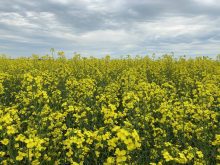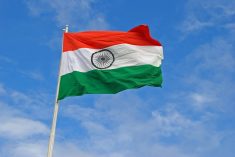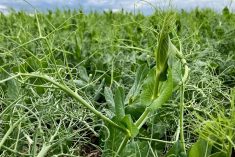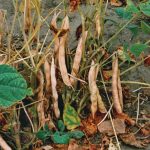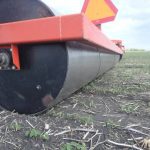Farmers in Eastern Canada who rely on imports of Russian-made fertilizers aren’t going to see direct compensation for the federal government’s general tariff on those products.
A clutch of farmer and ag industry groups on July 15 put forward a new request to Ottawa for compensation to farmers “negatively impacted” by a 35 per cent tariff imposed following Russia’s invasion of Ukraine.
Nearly all imports of goods from Russia and Belarus became subject to a general tariff of 35 per cent on March 2, when Ottawa withdrew both countries’ entitlement to the most-favoured-nation (MFN) treatment under Canada’s Customs Tariff.
Read Also
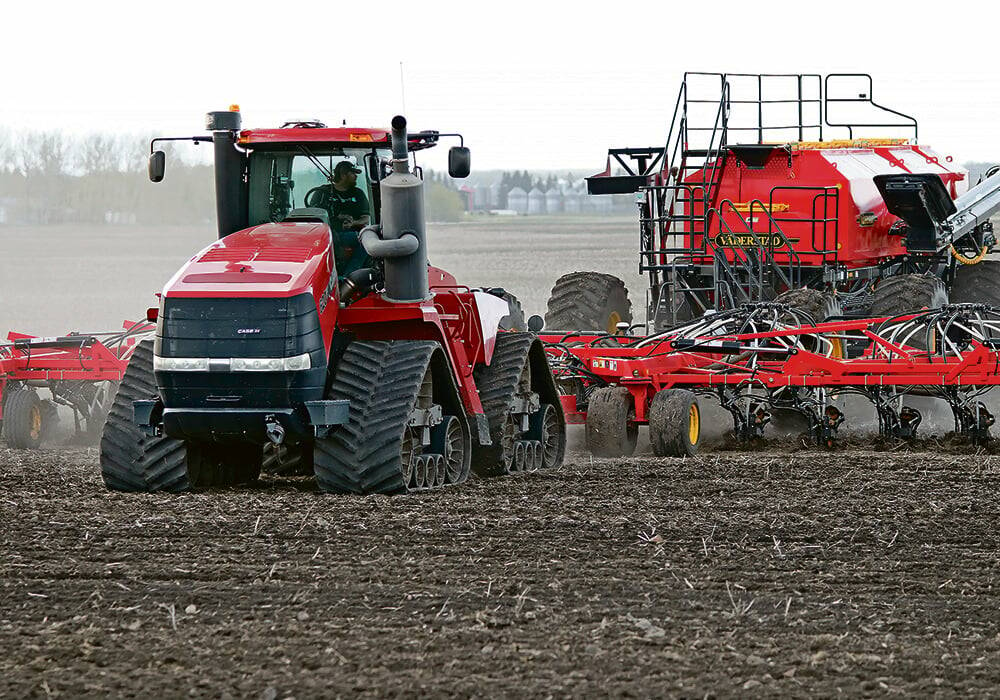
More canola, spring wheat likely to be seeded this spring
As spring planting approaches, farmers are busy planning which crops to seed this year and how much. With that, market thoughts have turned toward planted area projections, as Statistics Canada is set to issue its report on Thursday.
That move, the ag industry groups said July 15, was made “without any prior consultation with the agriculture sector” and eastern Canadian farmers were “disproportionately impacted.”
The ag organizations included Grain Farmers of Ontario, the Atlantic Grains Council, Quebec Grain Farmers, Ontario Bean Growers, Ontario Canola Growers and the Christian Farmers Federation of Ontario, as well as Fertilizer Canada, the Ontario Agri Business Association, ag co-operative Sollio Agriculture and input retailer and fertilizer distributor Sylvite Agri-Services.
Ontario, Quebec and Atlantic Canada, they said, rely “heavily” on fertilizer imports including about 660,000 to 680,000 tonnes of Russian nitrogen fertilizer per year, or about 85 to 90 per cent of the total nitrogen fertilizer used in the region.
Nitrogen fertilizers such as ammonia and urea are produced domestically, in Canada’s West, but for years it’s been more cost-effective for growers in the East to access imports from overseas.
The ag groups said July 15 their industry “strongly supports the people of Ukraine and condemns the Russian invasion” as well as sanctions imposed by Canada and its allies, but “action by the Canadian government should not jeopardize Canada’s capacity to produce food today or in the future.”
Canada’s application of the General Tariff made it the only G7 country with tariffs on Russian fertilizer, the groups said.
“Farmers bore the costs of tariffs which has put Canadian farmers at a disadvantage to farmers in other countries who did not have tariffs on fertilizers,” Christian Overbeek, chairman of Quebec Grain Farmers, said in the groups’ joint release. “We need compensation for farmers and concrete solutions for the 2023 planting season in place this summer.”
“An additional tariff paid by farmers on a global product such as fertilizer just penalizes the farmer,” Roy Culberson, chairman of the Atlantic Grains Council, said in the same release. “We look forward to working on a resolution with government.”
Asked during a media scrum Tuesday in Winnipeg about the groups’ requests, federal Agriculture Minister Marie-Claude Bibeau said that while the government has heard the request, it would be supporting Canadian farmers “in other ways.”
For example, she cited the government’s move last month to temporarily raise the interest-free portion of cash advances available under the Advance Payments Program to $250,000, up from the usual $100,000, for 2022 and 2023.
As for direct compensation, though, “we have been looking at it and we’ve made the decision to support farmers in a different way.”
Ottawa will be working with the industry and the various ag associations, she said, “to see how we can find alternative options to access fertilizer for the next season.”
Ontario Bean Growers, in a separate release Wednesday, called on the federal government to “return the fertilizer tariffs entirely, or at least for those purchases made prior to the war” — and also to invest in domestic fertilizer production in the longer term.
“We are also asking for the federal government to examine major trading partners, such as the U.S., to assess the disparity on costs caused by the Canadian regulations,” group chairman Dave Woods said in that release. — Glacier FarmMedia Network






